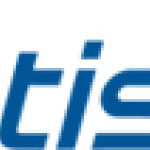- Industry: Telecommunications
- Number of terms: 29235
- Number of blossaries: 0
- Company Profile:
ATIS is the leading technical planning and standards development organization committed to the rapid development of global, market-driven standards for the information, entertainment and communications industry.
A code placed in unequipped channels by originating equipment to indicate to path terminating equipment that the channel is intentionally unoccupied so that alarms can be inhibited.
Industry:Telecommunications
A code representing characters by sets of parallel bars of varying thickness and separation that are read optically by transverse scanning. Note: Bar code uses include identifying merchandise, sorting mail, and inventorying supplies.
Industry:Telecommunications
A code that identifies whether the caller dialed the elected or chosen carrier and whether the caller presubscribed to the elected or chosen carrier.
Industry:Telecommunications
A code used for the transmission and identification of time signals. Note: In telecommunications systems, the format of the time code must be specified.
Industry:Telecommunications
A code used to identify both switched and nonswitched channel services. Included in this code set are customer options associated with individual channel services, or feature groups and other switched services.
Industry:Telecommunications
A code using more signal elements than necessary to represent the intrinsic information. Note: The redundancy may be used for error-control purposes.
Industry:Telecommunications
A code, the elements of which can assume either one of two possible states.
Industry:Telecommunications
A coded character set in which the characters of an alphabet have a one-to-one relationship with their digitally coded representations.
Industry:Telecommunications
A coding scheme, used as a modulation technique, in which multiple channels are independently coded for transmission over a single wideband channel. Note 1: In some communication systems, CDMA is used as an access method that permits carriers from different stations to use the same transmission equipment by using a wider bandwidth than the individual carriers. On reception, each carrier can be distinguished from the others by means of a specific modulation code, thereby allowing for the reception of signals that were originally overlapping in frequency and time. Thus, several transmissions can occur simultaneously within the same bandwidth, with the mutual interference reduced by the degree of orthogonality of the unique codes used in each transmission. Note 2: CDMA permits a more uniform distribution of energy in the emitted bandwidth.
Industry:Telecommunications
A coding technique used to compact data by representing the more common events with short codes and the less common events with longer codes. Note: Huffman coding is used in Group 3 facsimile.
Industry:Telecommunications
